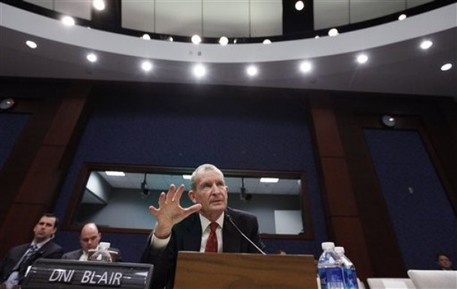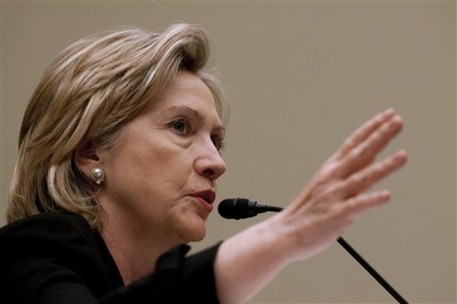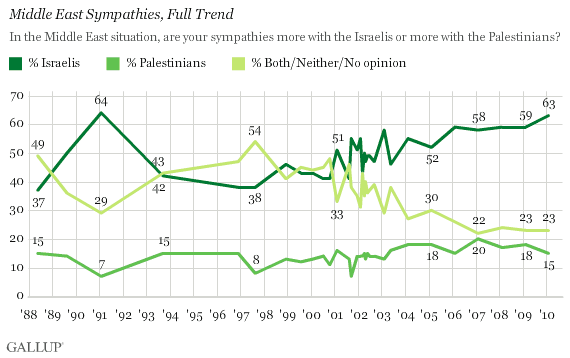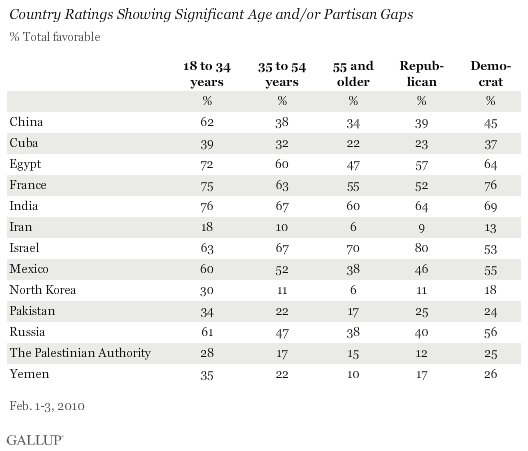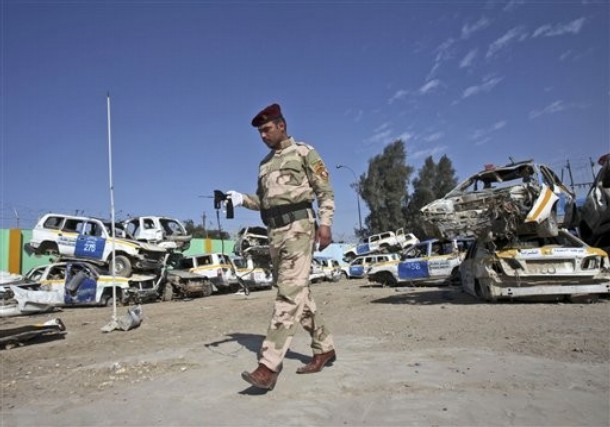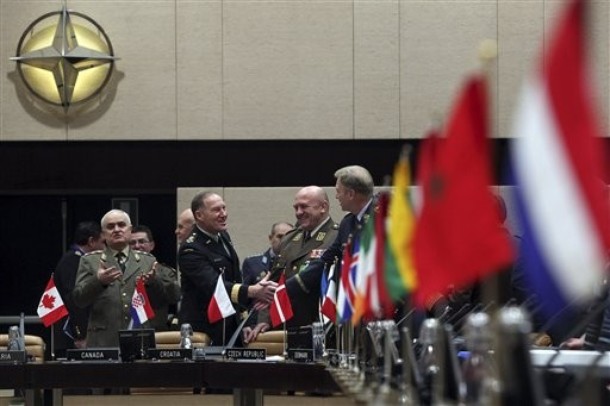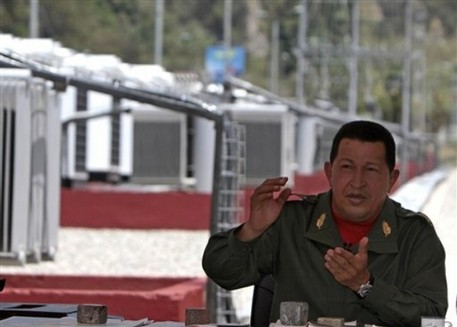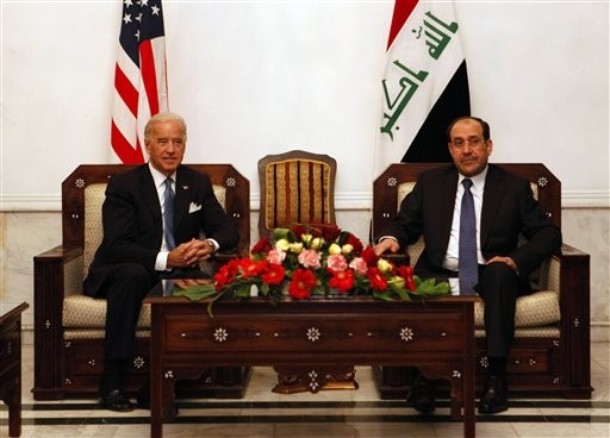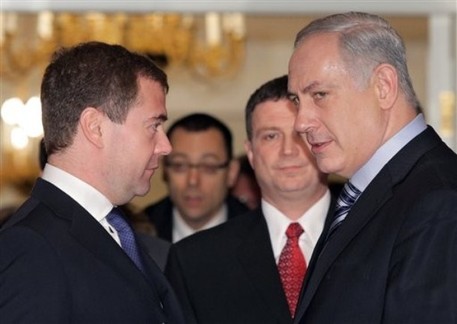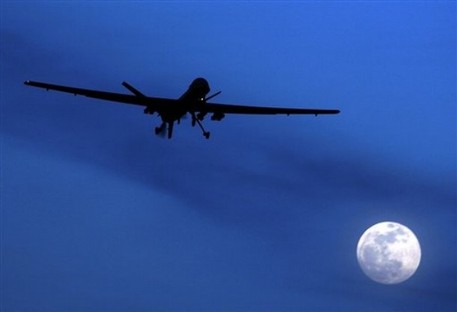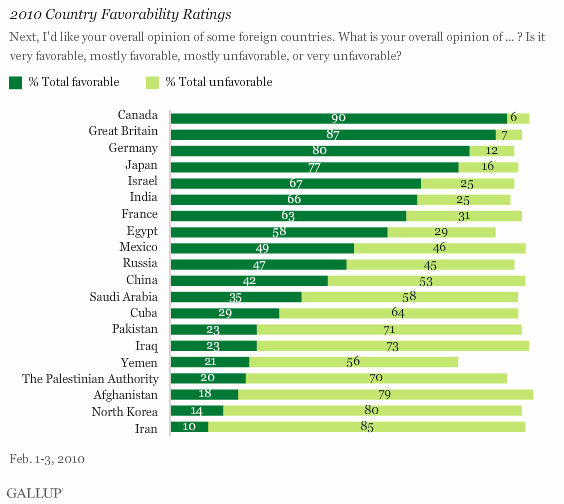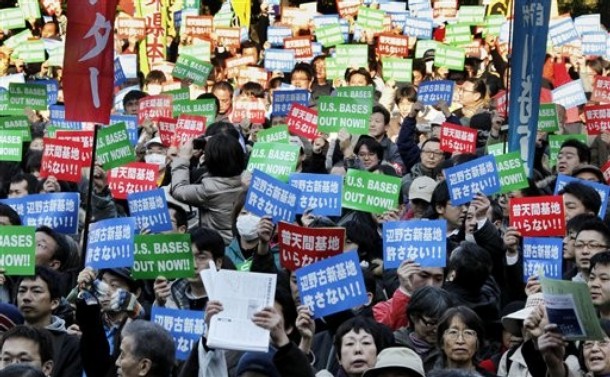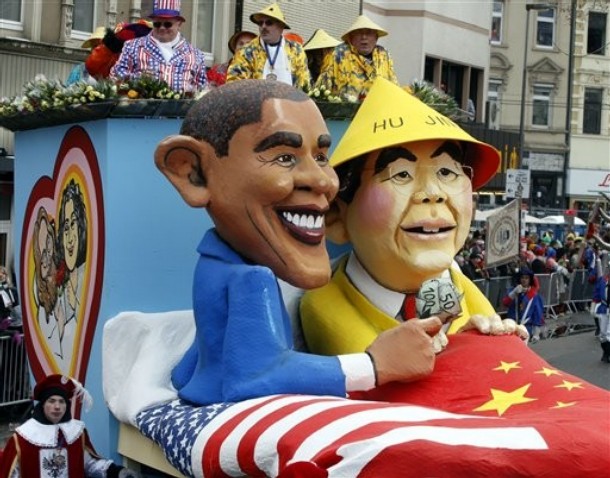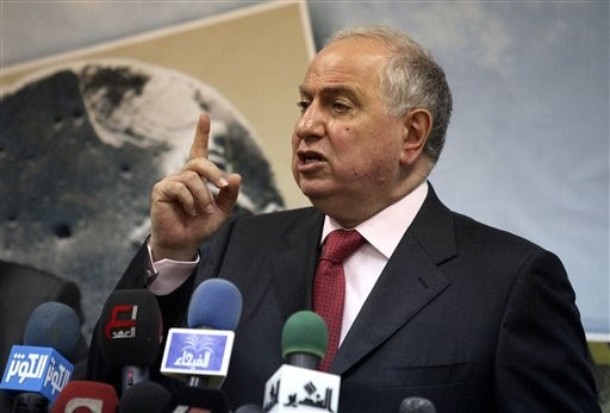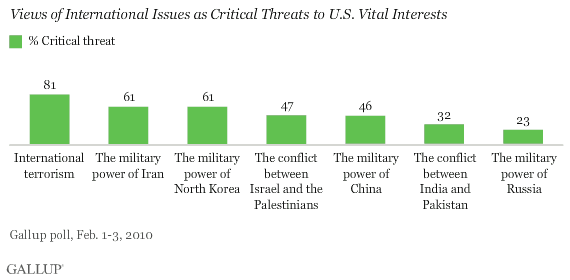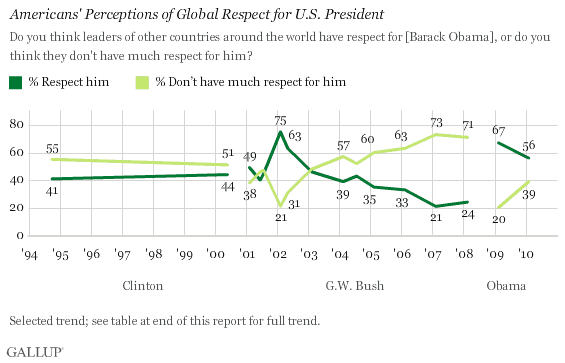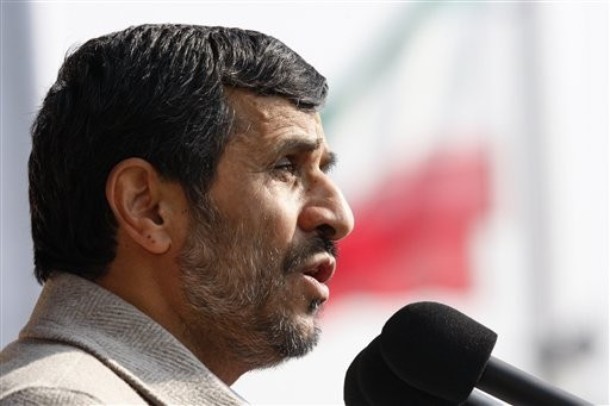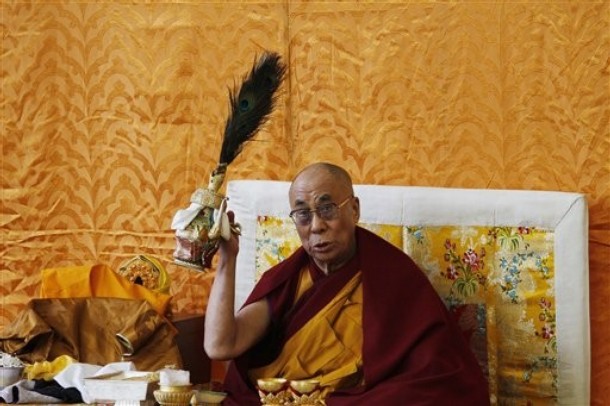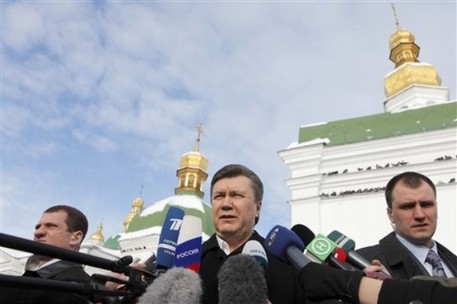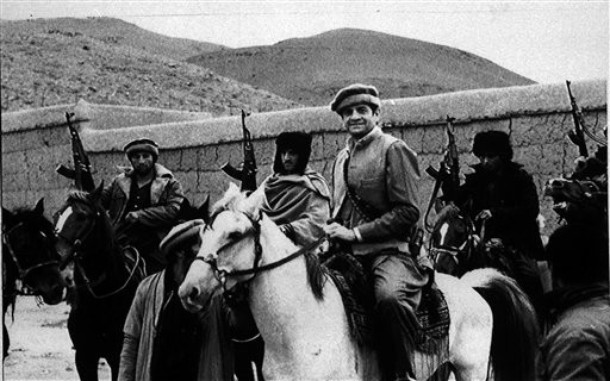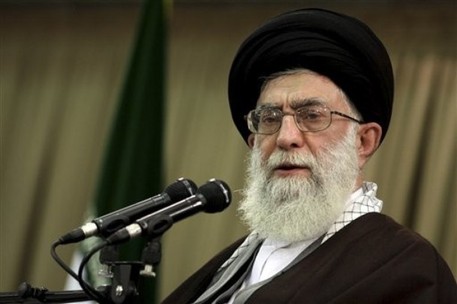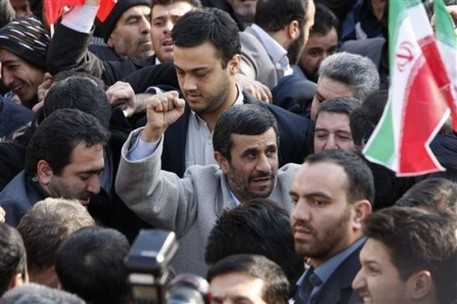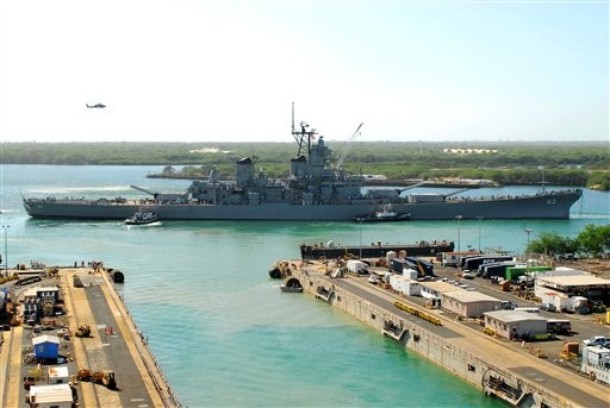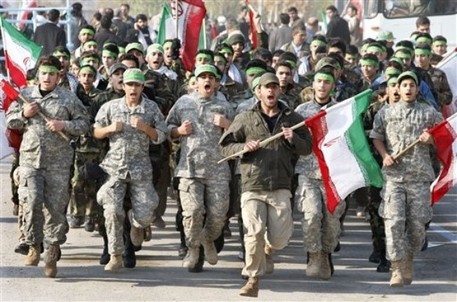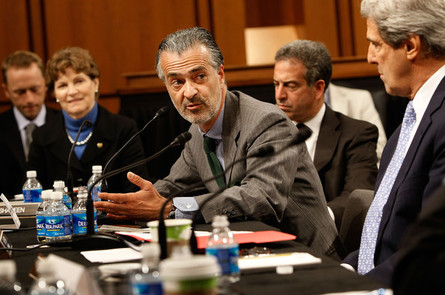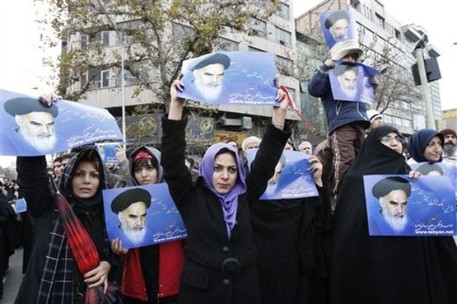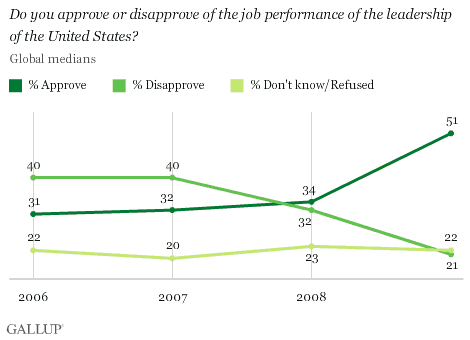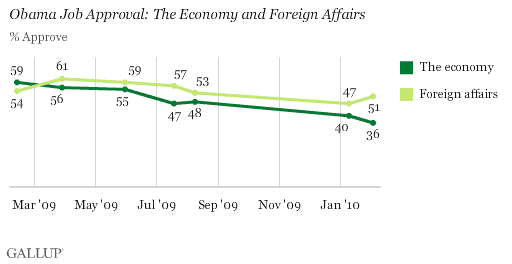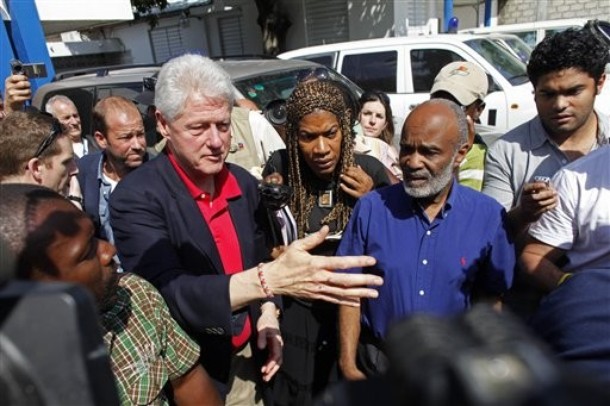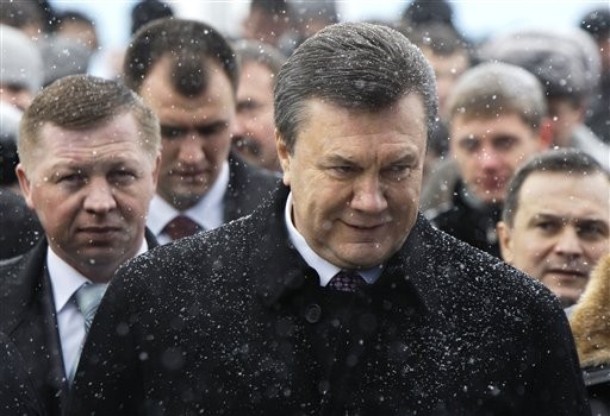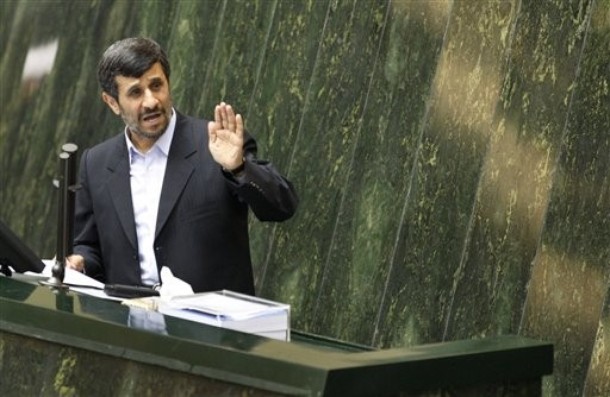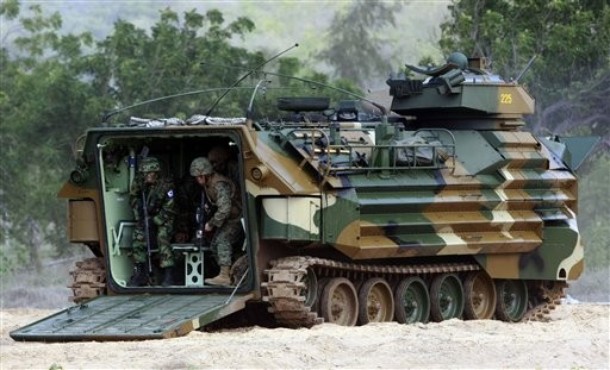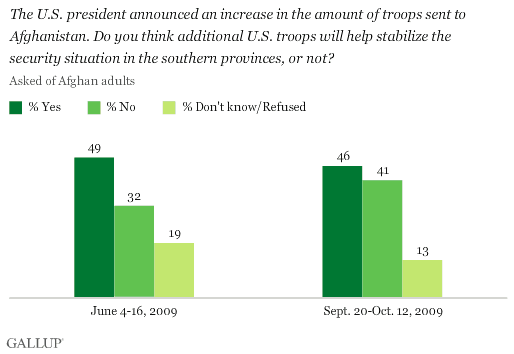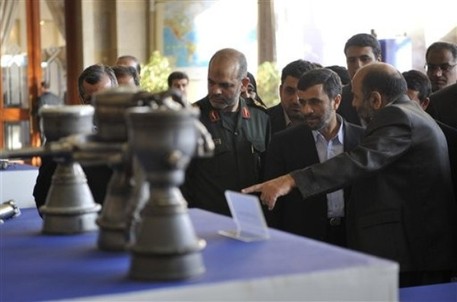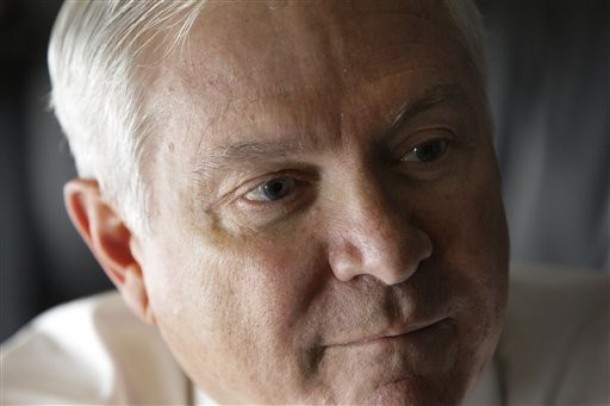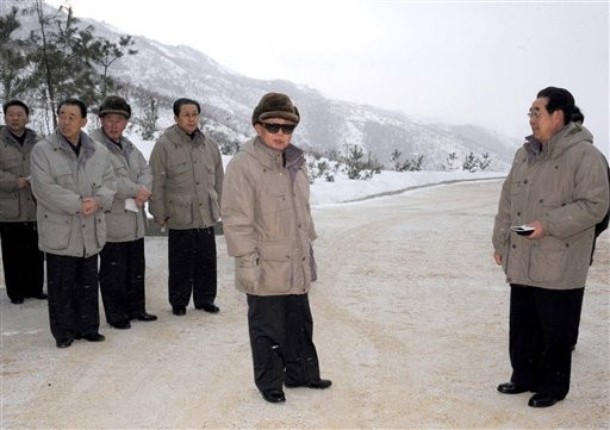Health Care and American Power, Ctd.
Last week, Kevin began to debunk two recent articles - one by the Times' Anatole Kaletsky and the other an article on recent statements by Sec. Hillary Clinton - which boldly argue that the death of current U.S. health care legislation will mean the inevitable death of America's influence around the world.
Clinton's argument is that ObamaCare's failure will signal to the rest of the world that American government is broken, and that this perception will adversely affect foreign countries' views on whether America still has the capacity to "move forward" and lead on international issues. Money quote: "Their view does color whether the United States — not just the president, but our country — is in a position going forward to demonstrate the kind of unity and strength and effectiveness that I think we have to in this very complex and dangerous world."
Kaletsky takes an even harsher line and argues that the demise of ObamaCare will dismantle the American economy, and by extension, America's influence in the world. He writes:
If nothing is done to change the US healthcare system, it can be stated with mathematical certainty that the US Government and many leading US companies will be driven into bankruptcy, a fate that befell General Motors and Chrysler largely because of their inability to meet retired workers’ contractually guaranteed medical costs....Gridlock over healthcare would imply similar stalemates on taxes, public spending, the budget, macroeconomic stimulus and financial reform. As a result, an active response to any future financial crisis might become impossible. Even worse, any important action to control US government borrowing could be ruled out.
Alrighty then. Kevin did a great job dismantling these arguments from the foreign policy angle by providing some excellent historical perspective on the issue, so I'm just going to weigh in from the international trade and economics angle.
My conclusion in short: Clinton's and Kaletsky's arguments are nonsense.
In particular, I see three major problems with them:
(1) Basic factual errors. Kaletsky argues that a failure to enact ObamaCare will lead to a rash of domestic bankruptcies like those of GM and Chrysler because of companies' failure to meet rising health care costs. This is dead wrong for two reasons. First, the idea that GM and Chrysler are the paradigms for the modern American company is silly. Those companies died because they (i) made crappy cars for decades and (ii) long ago ceded control of their economic fates to their unions (through insane labor contracts which guaranteed pay and benefits far above what the market could bear). The result of these bad labor deals disadvantaged Big-3 automakers vis-a-vis their U.S.-based foreign competitors by about $2000/car - a recipe for immediate economic oblivion. : Kaletsky mentions these bad labor deals ("inability to meet retired workers’ contractually guaranteed medical costs") but bizarrely assumes that most U.S. companies have them. They don't. Indeed, only 7 percent of the private workforce in America is unionized. Thus, the idea that "many leading US companies" will succumb to the same union-caused fate as GM and Chrysler defies reality.
Second, for those few U.S. companies that do have serious problems with union labor contracts, bankruptcy (i.e., Chapter 11 reorganization), merger or acquisition will be a blessing, not the death knell for the American economy. Reorganization will allow these companies to dump their loser labor contracts, ditch inefficient capacity and again become globally competitive. Indeed, this is precisely how the U.S. Steel Industry became healthy again in the 2000s - bankruptcies, mergers and streamlining of their workforce and production. This process turned a moribund industry of almost 50 inefficient players into an efficient and profitable sector with under 10 major producers. As such, the "bankruptcies" that Kaletsky describes would actually allow the U.S. economy to become stronger and more efficient. (Assuming, of course, that the United States government didn't stupidly bail-out every sector like it did with GM and Chrysler.)
(2) A disconnect between the current health care "solutions" and the "crises" described. Just as importantly, Kaletsky's and Clinton's statements suffer a tragic disconnect between the problems they describe and their only solution - passing ObamaCare. Kaletsky first claims that the Democrat health care bills (or some mythical other version of health care reform supported by the President) must be passed because a failure to reform the health care system would cause the bankruptcy of the American government and many leading companies. While it is certainly true that America's current health care entitlement programs are crippling state and federal budgets, and that rising costs are harming American businesses, none of the president's current health care plans would actually do anything to solve these problems. On the budget, the bold claims that any of the Democrat health plans actually decrease the budget deficit rely on the smarmiest of budget trickery. And while health care costs are indeed an issue for American businesses, the latest estimates are that ObamaCare will increase burdens on U.S. employers, not reduce them - hence why both the Chamber of Commerce and National Federation of Independent Business vehemently oppose the current bills (and why Wal-Mart sneakily supports them).
Clinton, on the other hand, seems to believe that the success of her party's health care agenda will somehow end the gridlock that pervades America's political system (or at least the world's perceptions of that gridlock). Leaving aside the fundamental question about whether political immobility is actually good or bad for the economy, anyone who has spent more than a few years in Washington knows full well that partisan gridlock isn't going anywhere, regardless of what happens with health care (or which political party is in power). And as Kevin ably pointed out last week, "little-d" democrats in most other countries, not just Iran and Russia, would "love to have our tedious deliberation and onerous amounts of free speech in their respective countries." So it's quite doubtful that foreign perceptions of American governance will be greatly harmed by the current health care morass.
(3) The mistaken belief that only ObamaCare's passage will enable the United States to advance international economic policy. It is certainly true that foreign countries are watching the United States, and that they do care about the American health care drama. But it's wrong to assume that just because foreign countries are paying attention that they'll react differently based on whether ObamaCare succeeds or fails. In fact, most foreign countries couldn't care less about whether the drama ends with success or failure. They care only that it ends, and thus that the Obama administration will finally cease subordinating international economic matters to securing passage of health care legislation. This is especially true on trade, where the White House has refused to engage in any major trade liberalization efforts out of fear of angering congressional protectionists and their anti-trade supporters (domestic labor unions, environmentalists, etc.). This disengagement has led to complete paralysis - pending U.S. FTAs with Colombia, Panama and Korea remain untouched, the WTO's Doha Round negotiations remain comatose, and bilateral trade conflicts (like the ban on Mexican trucks) remain unresolved - despite our trading partners' loudly pleading for the United States to get back in the game.
Given this reality, ObamaCare's failure would not, as Kaletsky and Clinton claim, lead to stagnation and impotence on trade and other international economic matters. Indeed, failure would actually liberate U.S. policymakers to once again act beyond the narrow interests of securing a few rust-belt votes. As such, failure would mean exactly the same thing to America's trading partners as would passage - that the paralysis caused by the health care debate would finally end. America's trading partners are dreaming for that day, and when it finally comes, they'll welcome us back with open arms.

